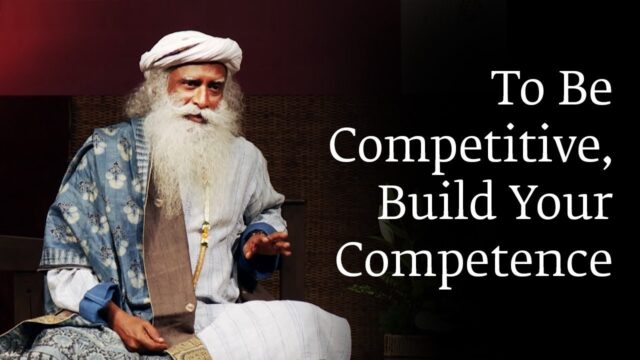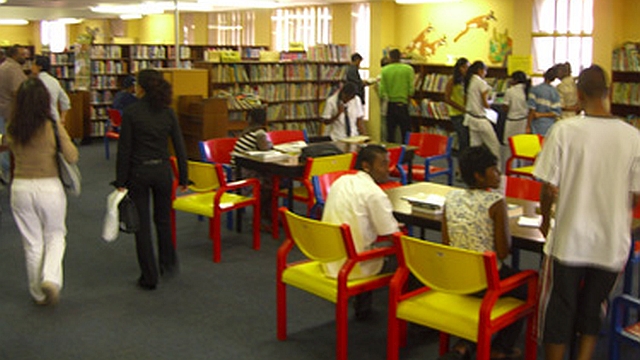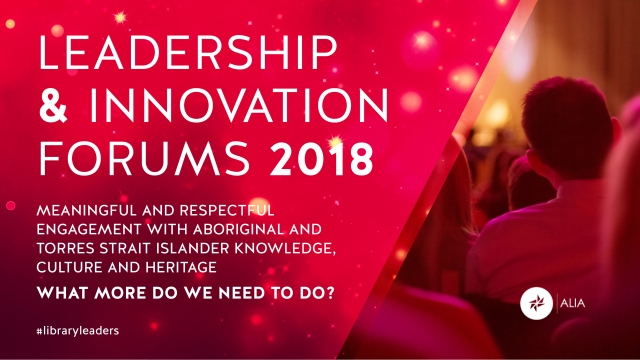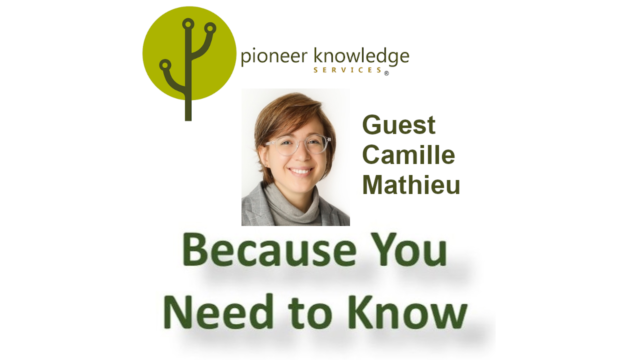
What does knowledge management mean for the future of libraries and librarians?
Libraries have been a fundamental part our communities, universities, and schools for a long time. However, the closure of libraries has become a growing trend, significantly in the United Kingdom where the scale of closures has been described as catastrophic, and also in other countries, for example the United States and Australia.
These closures have been causing understandable concern, but rather than heralding the beginning of the end of libraries, two of our authors over the past year have argued for the current uncertainty to be seen as a signal of the need for change.
First, Dr Ra Jes Chelliah from Edith Cowan University alerted that:
The librarian, now more than ever before, confronted by compelling forces, needs to explore pathways towards rebranding their traditional library services, particularly due to rapidly increasing digital information access and the unprecedented revolutionary increases in demographic diversity. The reality confronting public libraries is momentous. Libraries are at a crossroads, either to strive and thrive or resist and perish.
This was then echoed by Associate Professor Camilla Nelson from the University of Notre Dame Australia, who concluded that:
Libraries, by which I mean public libraries that are free, open and accessible, will not become extinct, even though they face new competition from the rise of private libraries and the Internet. Libraries will not turn into mausoleums and reliquaries, because they serve a civic function that extends well beyond the books they hold.
Libraries can and must change. Quiet study areas are being reduced, replaced not only by computer rooms but also by social areas that facilitate group discussions and convivial reading. There will be more books transferred to offsite storage, but there will also be more ingenious methods of getting these books back to readers.
We’ve also explored a number of ways in which libraries are making this change. There are libraries that are evolving their relevance through the establishment of innovation incubators. There are libraries that are identifying as creative spaces. There are libraries that are launching initiatives to support the STEAM agenda (science, technology, engineering, arts and mathematics).
And, there’s now a growing awareness of how embracing knowledge management can also assist in securing the future of libraries and librarians.
A 2016 academic libraries study1 by Hilde Daland from Agder University Library in Norway reveals that, to date, the focus of librarians has been mainly on information management and how information can be provided to library users in order for them to translate it into knowledge.
Daland concludes that it seems clear that a focus on the knowledge and skills of library staff and the management of this would be a fruitful way to face future library challenges, and as librarians are becoming increasingly knowledge workers, a focus shift must be made to facilitate this. She suggests an approach to bringing about this focus shift, and recommends that more research could be carried out to map the challenges and benefits of KM when it comes to library staff competencies and skills.
A new study2 by Ms. Pooja Agarwal, Librarian at Bhagwant University in Rajasthan, picks up on these issues, again focusing on academic libraries. The study looks at the justification for knowledge management in libraries, strategies for knowledge management in academic libraries, and the implications for the library and information science (LIS) profession.
The justification for knowledge management in libraries
According to Agarwal, the main justifications for implementing knowledge management in an academic library are to:
- ensure an all-round improvement of library staff capacity
- promote relationships between libraries and library users
- promote knowledge innovation
- strengthen knowledge inter-networking
- speed-up knowledge flows.
Other justifications given include:
- Tacit knowledge retention. Library staff can change employers or careers, or retire. A knowledge management initiative can harness the expertise and experiences of these employees before they leave the library.
- Mentoring. Knowledge management initiatives can facilitate the transfer of knowledge and expertise from more experienced library staff to less experienced staff.
- Enhancing knowledge management awareness. By promoting and raising awareness of the benefits of KM among library users, faculties, and other stakeholders, librarians are helping to educate others about the benefits of adopting knowledge management practices.
- Realizing the benefits of information technology. The combination of computers, databases, and telecommunications, especially the Internet, provide librarians with an incredible number of options for improving the way libraries as organizations function.
Strategies for knowledge management in academic libraries
Agarwal advises that there are a number of approaches that academic librarians should take to implement knowledge management:
- Acquire knowledge management tools. Librarians should have a knowledge of the tools needed for effective knowledge management and take steps to acquire them. These include Intranets/extranets, electronic document management, data analysis, data warehousing, mapping tools, machine learning, workflow management systems, groupware, information retrieval tools, and web archiving. There also needs to be an awareness that implementing these tools requires financial commitment.
- Update competencies. The effective exchange of information and knowledge is possible only if staff have the competent skills and techniques for information and knowledge transfer. These competencies potentially include cultural skills, leadership skills, strategic and restructuring skills, a sharp and analytical mind, an innovative and inquiring spirit, literacy on how to use appropriate technologies, good communication and interpersonal skills, an understanding of the needs of users, ability to develop creative solutions, ability to market the concept of knowledge management and its benefits, having a creative and long-term vision, and analytical and lateral thinking abilities.
- Engage in knowledge creation. Knowledge creation is a particularly important strategy and process of knowledge management because it focuses on the development of new skills, new products, better ideas, and more efficient processes. Achieving this requires the various staff at all levels in the library to be working together and exchanging ideas effectively, and also an understanding of user needs and requirements as well as the university’s curricula.
- Engage in knowledge sharing. For academic libraries to utilize their know-how, it is necessary that they become knowledge-based organizations. Academic libraries need to prepare themselves for using and sharing knowledge. The expertise and know-how of other librarians should be valued and shared through meetings, conferences, and seminars in which the outcome is documented. Making this know-how available to other librarians will eliminate or reduce duplication of efforts and form the basis for problem solving.
- Engage in knowledge capture. Academic libraries need to develop ways of capturing internal knowledge, and devise systems to identify people’s expertise and develop ways of sharing it. Formal processes for capturing knowledge can include collating internal profiles of academic librarians and also standardizing routine information-update reports. Lending desks folders of frequently asked questions (FAQ) can be created to enable librarians not only to provide an in-depth customized reference service but also to become knowledgeable about handling different enquiries.
- Engage in knowledge networking. Knowledge in academic libraries can be acquired through establishing knowledge links or networking with other libraries and with institutions of all kinds; attending training courses, conferences, seminars and workshops; subscribing to list-servers and online or virtual communities of practice; and buying or borrowing knowledge products or resources in the form of manuals, blueprints, reports and research reports from other libraries and organizations.
Implications for the library and information science (LIS) profession
Agarwal advises that academic librarians must extend their expertise beyond collection management to knowledge acquisition and management. They have to extend their expertise in selecting, organizing, and preserving information. They must be willing to move outside the walls of the traditional library and work assiduously with technologists, faculty, and students. This means that librarians are no longer merely custodians of information. Rather, they will act as knowledge managers who will work with users in collecting and analyzing strategic intelligence, acting as trainers and consultants to transfer knowledge throughout the organization.
In this paradigm shift, Agarwal sees librarians becoming knowledge management developers, knowledge management integrators, knowledge management educators, knowledge management researchers, and research assistants for both personal and professional development and for providing up-to-date assistance to library users. She urges librarians to make their libraries more clients-centered, to redesign work processes in line with university’s goals, and restructure their tools in order to support front-line performance, stating that the emphasis is more on the needs of the library user than the needs of the library.
References:
- Daland, H., (2016). Managing knowledge in academic libraries. Are we? Should we?. LIBER Quarterly. 26(1), pp.28–41. DOI: http://doi.org/10.18352/lq.10154 ↩
- Agarwal, P. (2017). Knowledge management in academic libraries: Librarians in the 21st century. International E-journal of Library Science, 5(1). ↩






